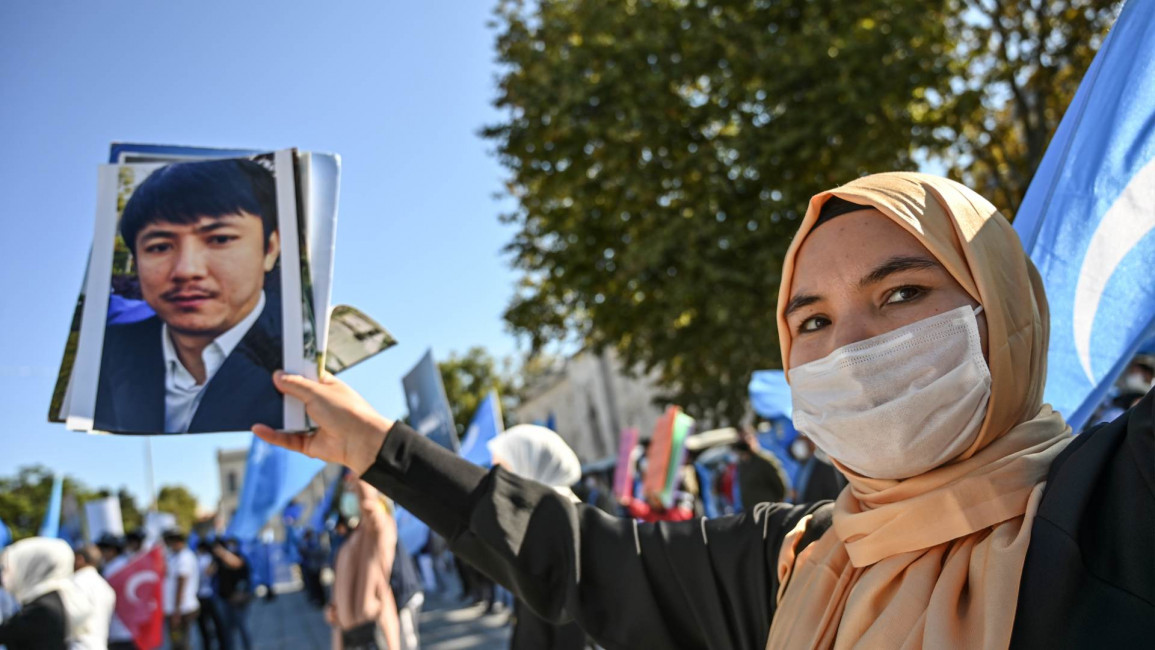Uighur activists alarmed by China-Turkey extradition treaty
A short statement on China's parliament website announced on Saturday that the "Standing Committee of National People's Congress" had ratified the bilateral agreement that was signed in 2017.
Turkey - which enjoys strong cultural and linguistic ties with some 50,000 Uighurs refugees in the country - has yet to follow suit.
"This extradition treaty will cause worry among Uighurs who have fled China and do not yet have Turkish citizenship," Dilxat Raxit, a spokesman for the German-based Uighur World Congress, told AFP.
"We call on the Turkish government… to prevent this treaty from becoming an instrument of persecution," he said.
Speaking to The Guardian, Leo Lan, a spokesman for China Human Rights defenders, said that the treaty would leave Uighurs facing heightened risk on their return to China.
Around one million members of the Turkic minority are believed to be detained in internment camps in China.
In the region of Xinjiang, a policy of maximum surveillance has been implemented against the group following attacks which Beijing has blamed on the Uighur separatist and Islamist movements.
In addition to reports of internment camps, which China claims are vocational training centres to combat extremism, mounting evidence points to major restrictions on religious expression, enforced labour, mass surveillance and forced sterilisation of women.
Twitter Post
|
Read also: How capitalism is enabling China's Uighur repression
Lan said Turkey must oblige with the international policy of non-refoulement - the practice of not forcing refugees to return to a place where they will face persecution, or of any person to a country where they face torture.
Lan warned that China could use "very ambiguous and broadly defined national security charges" in extradition requests.
The text of the treaty was subject to scrutiny by Human Rights group Nordic Monitor back in May.
They expressed concern at its apparent ambiguities, such as a clause that "it shall not matter whether the laws of both parties place the offence within the same category or describe the offence by same terminology".
Yet the treaty has provisions upon which extraditions may be challenged, including whether the state to which the extradition request is made considers the application related to a "political crime", if the person concerned is one of its citizens or enjoys the right of asylum.
Despite Turkey being one of the only Muslim-majority nations to be vocal about the plight of Uighurs, it has been accused of deporting Turkic group to third countries, such as Tajikistan, where it is easier for China to secure the extradition.
Amid increasing ostracisation by the West over warming ties to Russia and alleged rights abuses at home, Ankara has found itself increasingly dependent on Chinese investment, with Beijing reportedly investing billions in the country as part of its Belt and Road initiative.
Domestic opposition to ratifying the treaty remains staunch, with Turkish people sensitive to the Uighur cause.
Agencies contributed to this report.
Follow us on Facebook, Twitter and Instagram to stay connected



